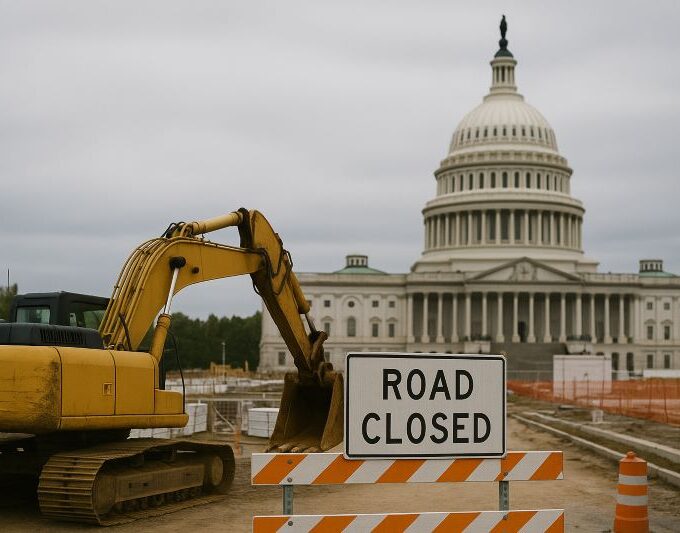U.S. President Joe Biden officially blocked Japan’s Nippon Steel Corporation’s (Nippon Steel) planned acquisition of United States Steel Corporation (U.S. Steel) on January 3, citing national security risks. The latest decision caused an uproar in Japan, with many media outlets emphasizing Japan’s status as a U.S. ally and noting that this marked the first time a U.S. president has ordered the blocking of a Japanese corporate acquisition. Japan’s Asahi Shimbun described the case as highlighting the “political risks” of conducting business in the U.S. In response to the U.S. government’s decision, Japanese Minister of Economy, Trade, and Industry Yasushi Muto called it “incomprehensible and regrettable.” Japanese media revealed that Nippon Steel, which suffered a major blow, has decided to take legal action against the U.S. government. According to Jiji Press, the Japanese government plans to support Nippon Steel’s lawsuit and convey its stance to U.S. Secretary of State Antony Blinken during his upcoming visit. American media, citing analysts, noted that Biden’s decision sent a “very bad signal” to Japan and could also raise concerns among European allies. Bloomberg commented that the case reflects a significant departure by the U.S. from globalization principles.
Japanese Officials: “It’s just too difficult.”
In his January 3 statement, Biden said that a strong steel industry owned and operated by domestic companies is a “critical national security priority” and that this acquisition would “place one of America’s largest steel producers under foreign control, posing risks to U.S. national security and key supply chains.” According to an AFP report on January 4, the United Steelworkers Union (USW) quickly welcomed the decision, thanking Biden for taking “bold action.” Nikkei Asia noted that the USW previously expressed distrust of Nippon Steel, claiming that the company might shift steel production to other countries.
Nippon Steel and U.S. Steel expressed disappointment, calling the move a “clear violation of due process and relevant laws.” In a joint statement, the two companies argued that “the President’s statement and order provide no credible evidence of national security concerns,” labeling the decision as “political.” They said their interactions with the Committee on Foreign Investment in the United States (CFIUS), which reviewed the deal, were “transparent,” but the process was “severely politicized,” and the outcome was “pre-determined.” The statement warned that the case sends a “chilling message to any allied company considering major investments in the U.S.”In December 2023, Nippon Steel announced plans to acquire U.S. Steel for $14.9 billion, and the acquisition plan was approved in April the following year. However, the Committee on Foreign Investment in the United States (CFIUS) reviewed the transaction for several months on the grounds of “national security.” On December 23 last year, CFIUS submitted its final assessment report to the White House, stating that it could not reach a consensus on whether the acquisition posed a national security risk. As a result, the final decision was left to President Biden. CFIUS warned that allowing Nippon Steel to acquire U.S. Steel could lead to a decline in domestic steel production capacity, posing a potential threat to U.S. national security.
According to Japan Broadcasting Corporation (NHK) on January 4, Japan’s Minister of Economy, Trade, and Industry Yasushi Muto expressed strong concerns on behalf of “Japanese industry, particularly the Japanese business community” regarding future investment cooperation between Japan and the United States due to the U.S. blocking the acquisition. He stated that the Japanese government “must take this matter very seriously.” Japan’s Asahi Shimbun reported that in November last year, Japanese Prime Minister Shigeru Ishiba sent a letter to President Biden requesting approval of the acquisition, but the effort had no practical effect. A Japanese government official commented that “there was no problem with the acquisition itself,” adding that Biden’s rejection was likely due to concerns over the sentiments of the United Steelworkers union.
According to Jiji Press on January 4, the blocked acquisition has sparked disappointment within the Japanese government. A Japanese Ministry of Foreign Affairs official remarked, “The U.S. encourages foreign investment, but when you actually invest, you encounter resistance. It’s truly difficult.”
U.S. Media: Biden Ignored Advice from Some Advisors
AFP reported that Biden made the decision less than three weeks before leaving office, following a prolonged domestic debate on the deal, which involved conflicting political, economic, and trade considerations. The Washington Post stated on January 5 that Biden’s decision ignored the advice of some senior advisors. Sources revealed that during a meeting chaired by White House Chief of Staff Jeff Zients last Thursday, National Security Advisor Jake Sullivan and others suggested a “conditional” rejection, urging Nippon Steel to propose more measures to mitigate potential national security risks. This approach could have deferred the issue to the next administration.
Reports indicate that over the past few months, several key officials, including Deputy National Security Advisor Jon Finer, Secretary of State Antony Blinken, Deputy Secretary of State Kurt Campbell, U.S. Ambassador to Japan Rahm Emanuel, Treasury Secretary Janet Yellen, and White House Council of Economic Advisers Chair Jared Bernstein, opposed or expressed reservations about fully blocking the deal. They emphasized Japan’s status as the U.S.’s most important ally in East Asia and warned that canceling the deal could strain bilateral relations. However, for some members of Biden’s economic team and political advisors, blocking the deal presented a rare opportunity to protect American jobs and bolster Biden’s legacy. Officials supporting the decision included U.S. Trade Representative Katherine Tai and three of Biden’s most loyal and long-serving advisors.
The Nikkei Asia reported on January 4 that the controversy underscores the continued political clout of the U.S. steel industry despite its decline. While the number of U.S. steelworkers has dwindled to fewer than that of nail technicians, the industry’s political influence remains significant due to the hollowing out of other sectors. It is no coincidence that U.S. Steel’s headquarters and main plants are located in Pennsylvania, a key swing state in U.S. elections.
Japanese Media: Nippon Steel Faces Three Scenarios
Nikkei Asia outlined three possible scenarios for Nippon Steel after the setback. The first is pursuing legal action. While the company cannot sue Biden’s decision directly, it can challenge CFIUS’s review process. According to Asahi Shimbun, Nippon Steel has already decided to file a lawsuit against the U.S. government.
The second scenario involves Nippon Steel reducing the scope of the deal by acquiring only part of U.S. Steel’s shares. However, this would still be subject to CFIUS review and may pose other challenges. For instance, reduced investment could limit the extent of technology-sharing between the two companies.
The third scenario speculates that the deal might “miraculously” be revived under a Trump administration. However, this seems unlikely, as Trump opposed the acquisition throughout his presidential campaign.
The Kyodo News reported on January 4 that Biden’s prohibition forces Nippon Steel to reconsider its global strategy. The acquisition was a key step for the company to achieve its ambition of becoming the “world’s leading integrated steelmaker” by strengthening its presence in the U.S. market. The setback, therefore, dealt a particularly heavy blow.
At the same time, the British Broadcasting Corporation (BBC) reported on January 4 that questions have arisen about the future of U.S. Steel. Once a symbol of American industrial strength, the 124-year-old company is now in decline. Deutsche Welle noted that U.S. Steel may struggle to find a buyer willing to acquire the entire company. U.S. conservative think tank Hudson Institute’s expert on U.S.-Japan relations, William Zhou, criticized Biden’s decision, saying it cut off much-needed capital and equipment for the U.S. steel industry. He added that while Biden often talks abstractly about protecting the industry, he has not proposed measures to enhance productivity through technological investment.
“Big Questions” Over America
Biden’s decision has sparked widespread criticism in Japan. The Nikkei stated on January 5 that blocking the “legitimate acquisition” by a Japanese company, a U.S. ally, contradicts Biden’s principles of a free and open economy. Asahi Shimbun argued that the ban exposed inconsistencies in Biden’s policies, noting that rejecting a major investment from Japan—a top investor and ally—casts doubt on his administration’s credibility. This case sets a “vivid precedent,” signaling the “political risks” of U.S. interference in business activities based on arbitrary standards.
The Yomiuri Shimbun editorial on January 5 criticized Biden’s decision as “extremely rare” and “unacceptable,” warning that it could negatively impact U.S.-Japan relations and deter future investment in the U.S. Sankei Shimbun posed a pointed question: “What does it mean to be an ally of the U.S.?”
Politico noted that foreign companies are receiving a clear signal that when considering investments in the U.S., they must account for not only business strategies but also diplomatic and political factors. Former U.S. Commerce Department official Reinsch remarked that this incident might even make Europeans take note, leading to greater caution toward U.S. investments. Analysts quoted by Kyodo News warned that prohibiting such acquisitions sends the wrong message to friendly and allied nations.
Asahi Shimbun concluded that the slowing acceptance of foreign direct investment in the U.S. could mark the beginning of a global economic trend toward “bloc-ization.” Bloomberg recently commented that Biden’s decision reflects the new political landscape of global trade and investment, where even a company from a close ally like Japan cannot fully mitigate so-called “national security concerns.”













Leave a comment